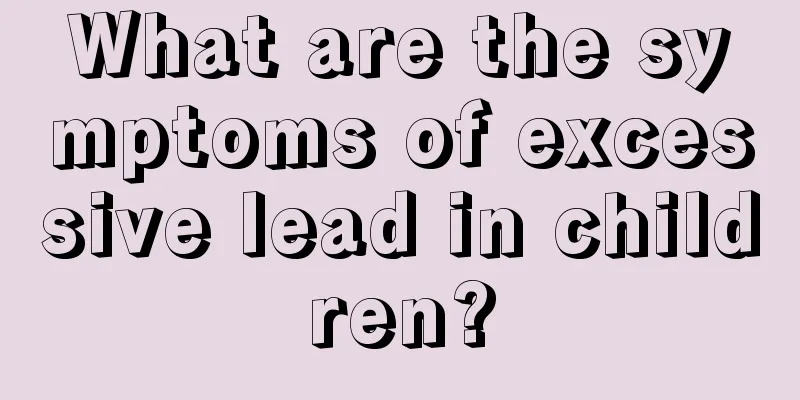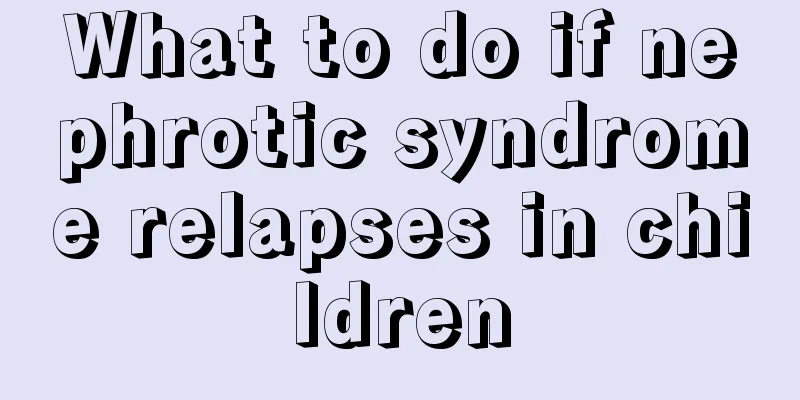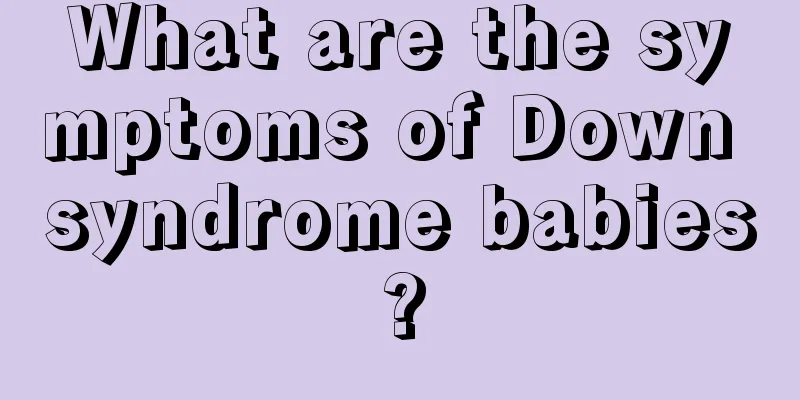What are the symptoms of excessive lead in children?

|
In daily life, excessive lead has a great impact on children's health. After children ingest a certain amount of lead, their bodies will be prone to some changes. In severe cases, it may easily lead to poisoning and endanger the child's life. The symptoms of excessive lead in children include loss of appetite, general fatigue, or gastrointestinal diseases. It may also easily affect the child's intellectual development. Parents should observe in time. What are the symptoms of excessive lead in children? If children have excessive lead levels, problems will occur in all systems of the body, and may even be life-threatening. Common symptoms include: 1. Nervous system: irritability, hyperactivity, short attention span, aggressive behavior, slow reaction, drowsiness, movement disorders. Severe cases may include mania, delirium (a temporary neurological disorder characterized by confusion, bewilderment, incoherent speech, restlessness, agitation, and often delusions or hallucinations), visual impairment, and cranial nerve paralysis. When the blood lead level is around 1000 ug/L (4.826umol/L), symptoms of lead encephalopathy such as headache, vomiting, convulsions, coma, and even death may occur. 2. Digestive system: abdominal pain, constipation, diarrhea, nausea, vomiting, etc. 3. Blood system: microcytic hypochromic anemia, etc. 4. Cardiovascular system: hypertension and arrhythmia. 5. Urinary system: aminoaciduria, glucosuria, and hyperphosphaturia in the early stage; in the late stage, patients may experience symptoms of renal failure such as azotemia. Subclinical lead poisoning mainly affects children's intellectual behavioral development and physical growth. Due to the lack of clinical manifestations sufficient to attract the attention of parents and pediatricians, it is often easily ignored. By the time it is discovered, the toxic effects of lead are difficult to reverse. Its hidden and progressive pathological characteristics make it more harmful to children's health. Therefore, it is the focus of research on childhood lead poisoning. The harm of excessive blood lead Although excessive lead has extremely serious impacts on human health, many people are not aware of its terrible harm. The metabolic half-life of lead in the human body is 1460 days. The long-term accumulation of lead that enters the human body every day can cause chronic lead poisoning. People will experience symptoms of neurasthenia such as fatigue, lack of energy, inattention, headache, dizziness, insomnia, and dreaminess, as well as mental or emotional changes such as mild excitement, irritability, anxiety, and hysterical attacks. There may also be gastrointestinal symptoms, such as loss of appetite, nausea, abdominal discomfort, etc. In addition, men may have decreased libido and impotence, and women may have menstrual disorders. It can also cause cardiovascular and cerebrovascular diseases and chronic respiratory diseases in middle-aged and elderly people. Medical experts point out that the lead ingested by children is not mainly accumulated in the bones like that of adults, but enters the body tissues. Therefore, excessive lead is more harmful to children. Because children's blood-brain barrier is not yet fully developed, lead can more easily pass through the blood-brain barrier and cause permanent damage to brain development. Most experts are accustomed to calling the "lead" that invades the human body "lead poisoning". The first symptoms that will appear are "the brain is filled with lead" - such as lack of concentration, memory loss, insomnia, dizziness, neurasthenia, fatigue, etc., and then there will be symptoms of "limbs are filled with lead" - unable to lift the legs, unable to lift the hands, and then abdominal cramps, anemia, paralysis, convulsions, twitching, coma and other manifestations of multiple organ damage. |
<<: What should children eat to recover quickly from bone fractures?
>>: The baby was born with a soft bump on his head
Recommend
6-year-old has arm pain after vaccination
After giving babies vaccinations, some adverse sy...
What should I do if my child has inflammation and repeated fever?
In our lives, there are some diseases that occur ...
What to do if baby has fever
For babies with fever, you need to lower the indo...
What are the methods of making baby steamed buns?
Many mothers like to make some delicious food for...
Can children eat durian when they have a fever?
Everyone will encounter various diseases during t...
Will the baby's temperature rise after feeding?
There are two situations when babies drink milk: ...
At what age is it better to check the trace elements of the baby?
As the baby grows day by day, the nutrition of br...
How much do children usually grow in a year?
A person's height will stop growing at a cert...
Are there white spots on a child's fingers vitiligo?
If your child has white spots on his fingers, you...
The child has herpetic pharyngitis
If a child develops herpetic pharyngitis, it will...
What can a seven-month-old baby eat?
Children and the elderly both need care. When rai...
Will children not grow taller if they learn hip-hop dancing?
Street dance is a very popular dance in the West....
Can you scare a disobedient child?
It is a common phenomenon that children have a ce...
What are the symptoms of low blood calcium in babies?
Children in childhood will always face some disea...
White spots on the forehead of children
If white spots appear on the child's forehead...









